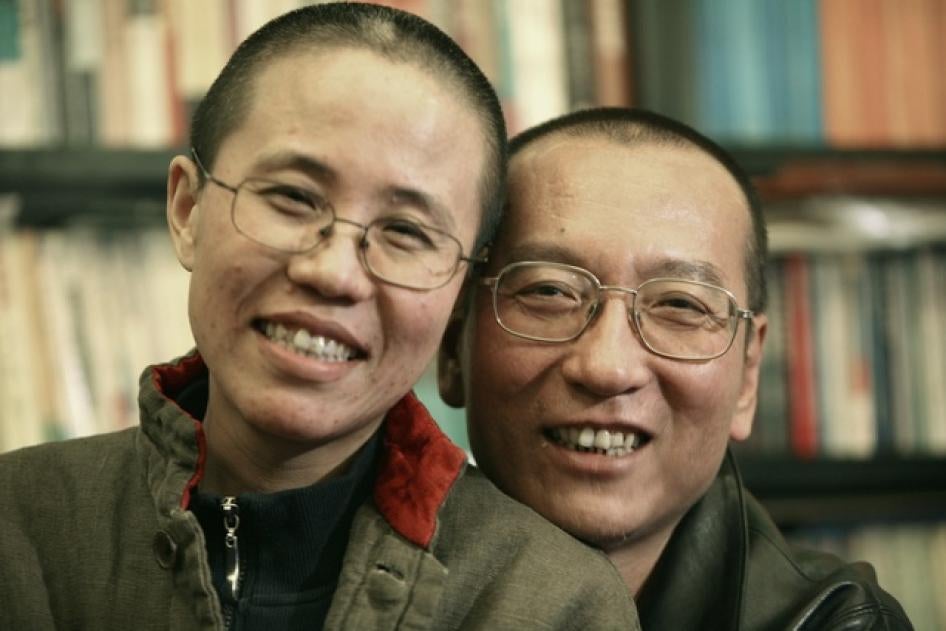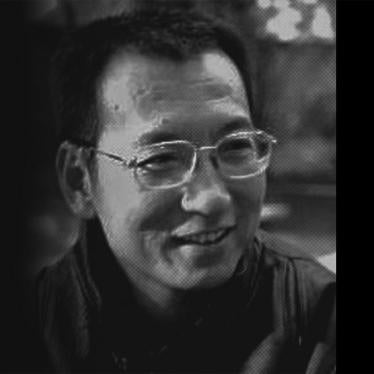In her remarks for a 2009 award ceremony honoring her husband, Liu Xia wrote, “I am not a vassal of Liu Xiaobo.” Yes, she has played an inextricable role in the chronicle of her husband’s imprisonment and his global prominence as a face of Chinese dissidence. She has been his artistic collaborator, one of his few visitors in prison, and, with his death, the bearer of his legacy. But no one should lose sight of her singular status as a fiercely independent advocate, an elegiac storyteller, and an enduring survivor of the seven-year isolation imposed on her by the Chinese government.
Liu Xia has been held in unlawful house arrest since October 2010, when Liu Xiaobo, serving an 11-year prison sentence on charges of “inciting subversion,” was awarded the Nobel Peace Prize. Detained without charge or trial, she has been stripped of communication with the outside world and denied adequate medical care.
Liu Xia continued writing poetry and reading fervently – for her, an act “like breathing,” which had become a way to “meander in the world.” Her work has been shared publicly through pieces smuggled out by friends. In 2013, three requests from her were shared online – to see a doctor, to have a job, and for her and Liu Xiaobo to be allowed to read the letters they sent each other. From their separate confines, they had continued sharing that which had first connected them in the 1980s – poetry – despite being denied the chance to read the other’s words. “Xiaobo and I have accumulated hundreds of such poems, which were born of the conversations between our souls,” Liu Xia wrote, a year before she was detained.
Their writing expresses the unique agony of their situation, but also, at times, a shared optimism – both for the future of democracy in China and for their partnership. “Even if I were crushed into powder, I would still use my ashes to embrace you,” Liu Xiaobo wrote in a statement for his 2009 sentencing, later read as his Nobel Lecture in absentia. From the Shenyang hospital in northeastern China where he died, Liu Xiaobo handwrote his final piece, lines of poetry for Liu Xia, which will be published alongside a collection of her photographs.
Theirs is a poetry of transcendence, a means to eclipse the constraints of an authoritarian regime:
Before you enter the grave
Don’t forget to write me with your ashes
Do not forget to leave your address in the nether world.
Reported to be suffering from severe depression, Liu Xia wrote in 2011:
For me the future is
a closed window
where night has no end
and nightmares can’t be lifted.I want to be in light.
Concerns for Liu Xia have mounted over recent weeks, as even her mourning has been carried out under the government’s strict surveillance and control.
She has not been allowed to speak independently, and friends and relatives have been refused contact. After announcing Liu Xiaobo’s cremation and sea burial – a move seen as a speedy effort to deny his friends a voice in the process and a site for memorial – a government spokesman repeated the claim being made in state media: “Liu Xia is free.”
In 2013, Liu Xia was allowed to attend her brother’s trial, one of her only public appearances. Upon leaving the courthouse, she shouted to reporters a message to be remembered and echoed today: “I am not free. If they tell you I’m free, tell them I’m not free.”








